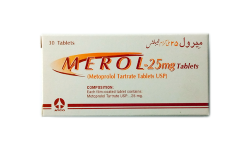ZESTRIL TABLETS
Irfan Traders exporter of Zestril tablets at affordable and competitive rates. Zestril tablets are used to treat high blood pressure (hypertension) in adults and children who are at least 6 years old. Zestril is also used to treat congestive heart failure in adults, or to improve survival after a heart attack. It works by relaxing blood vessels so blood can flow more easily.
Description
Title: A Comprehensive Examination of Zestril Tablets: Mechanism, Indications, Dosage, Side Effects, and Considerations
Introduction:
Zestril tablets are a brand name for a medication that contains lisinopril as its active ingredient. Lisinopril belongs to a class of drugs known as angiotensin-converting enzyme (ACE) inhibitors. Zestril tablets are commonly prescribed to manage hypertension (high blood pressure), heart failure, and other cardiovascular conditions.
This detailed description aims to explore various facets of Zestril tablets, encompassing their pharmacology, therapeutic uses, dosage and administration, potential side effects, precautions, and drug interactions.
Pharmacology:
Lisinopril, the active ingredient in Zestril tablets, are an ACE inhibitor. ACE inhibitors function by inhibiting the conversion of angiotensin I to angiotensin II, a potent vasoconstrictor.
By blocking this process, lisinopril promotes vasodilation (widening of blood vessels), reducing peripheral resistance and ultimately lowering blood pressure. Additionally, lisinopril inhibits the degradation of bradykinin, a substance that further contributes to vasodilation.
Therapeutic Uses:
Zestril tablets are prescribed for various cardiovascular conditions, primarily focusing on its ability to lower blood pressure and improve cardiac function. The therapeutic uses of Zestril include:
- Hypertension (High Blood Pressure): Zestril is commonly used as a first-line treatment for hypertension. By reducing blood pressure, it helps mitigate the risk of cardiovascular events such as strokes and heart attacks.
- Heart Failure: Zestril tablets are indicated in the management of heart failure. It can improve symptoms, enhance exercise tolerance, and reduce hospitalizations related to heart failure.
- Post-Myocardial Infarction (Heart Attack): Zestril is beneficial in the treatment of patients who have recently suffered a myocardial infarction. It helps prevent further cardiovascular events in this population.
Dosage and Administration:
The dosage of Zestril tablets varies based on the specific condition being treated, the patient’s medical history, and individual response to the medication.
It is crucial to adhere to the healthcare provider’s recommendations and follow the instructions provided on the prescription label.
- Hypertension: The typical starting dose for hypertension is often 5 mg once daily, with adjustments made as necessary based on blood pressure response. Higher doses may be prescribed in some cases.
- Heart Failure: The initiation and titration of Zestril in heart failure patients should be closely monitored by a healthcare professional. Starting doses are usually lower and gradually increased.
- Post-Myocardial Infarction: The recommended starting dose after a heart attack is typically lower, around 2.5 mg, with subsequent adjustments based on individual patient response.
Zestril tablets are usually taken orally, with or without food, and patients should continue to take the medication even if they feel well unless instructed otherwise by their healthcare provider.
Side Effects:
While Zestril is generally well-tolerated, it can cause side effects in some individuals. Common side effects include:
- Hypotension (Low Blood Pressure): Zestril’s antihypertensive effects can lead to a drop in blood pressure, causing symptoms such as dizziness or fainting.
- Cough: A persistent dry cough is a known side effect of ACE inhibitors, including Zestril. If the cough becomes bothersome, alternative medications may be considered.
- Hyperkalemia: Elevated levels of potassium in the blood can occur, particularly in patients with pre-existing kidney problems or those taking potassium supplements.
- Renal Impairment: ACE inhibitors, including Zestril, can affect kidney function, especially in individuals with pre-existing renal conditions.
- Angioedema: Although rare, ACE inhibitors have been associated with angioedema, a severe swelling of deeper layers of the skin. This is a serious condition that requires immediate medical attention.
Patients should promptly report any unusual or severe side effects to their healthcare provider.
Precautions and Contraindications:
Certain precautions and contraindications should be considered before initiating Zestril therapy.
- Pregnancy and Breastfeeding: Zestril is not recommended during pregnancy, especially in the second and third trimesters, as it may cause harm to the developing fetus. It is also not recommended during breastfeeding.
- Renal Impairment: Caution is advised in patients with impaired renal function, and dosage adjustments may be necessary.
- Hypotension: Patients with a history of hypotension or those at risk of excessive drops in blood pressure should use Zestril cautiously.
- Hyperkalemia: Monitoring potassium levels is crucial, especially in patients with renal impairment or those taking potassium supplements.
- Angioedema: Patients with a history of angioedema or hypersensitivity reactions to ACE inhibitors should not use Zestril.
Drug Interactions:
Zestril may interact with other medications, potentially altering their effects or increasing the risk of side effects. Some notable interactions include:
- Diuretics: Concomitant use of Zestril with diuretics may enhance the antihypertensive effects, but caution is needed to avoid excessive drops in blood pressure.
- Non-Steroidal Anti-Inflammatory Drugs (NSAIDs): NSAIDs, including over-the-counter varieties, can reduce the antihypertensive effects of ACE inhibitors and increase the risk of renal impairment.
- Lithium: ACE inhibitors may increase lithium levels, necessitating careful monitoring when used together.
- Potassium-Sparing Diuretics: Concurrent use of potassium-sparing diuretics may increase the risk of hyperkalemia.
Patients should inform their healthcare provider about all medications, including prescription, over-the-counter, and herbal supplements, before starting Zestril.
Conclusion:
Zestril, with lisinopril as its active ingredient, is a widely prescribed medication for the management of hypertension, heart failure, and post-myocardial infarction treatment.
Its role as an ACE inhibitor contributes to its efficacy in lowering blood pressure and improving cardiovascular outcomes.
While generally well-tolerated, patients need to be aware of potential side effects, precautions, and drug interactions. Regular monitoring and open communication with healthcare providers are crucial to ensuring the safe and effective use of Zestril.
As with any medication, individuals should consult their healthcare professional for personalized advice based on their medical history and current health status.






Reviews
There are no reviews yet.